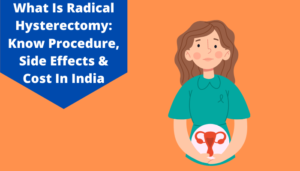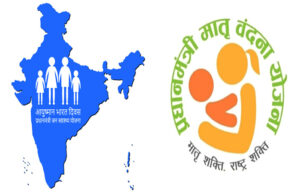Buy Medical Insurance Policy Online in India
Mediclaim Health Insurance
The increase in medical and healthcare costs is a good enough reason to emphasize the importance of Mediclaim policy. Another reason is the increasing rate of illnesses and health issues. Health emergencies can arise at any point – think hospitalization due to accidents, due to seasonal, vector-borne diseases or lifestyle ailments. One of the most effective solutions to safeguard one’s self from health problems is – Mediclaim insurance.
Research reveals that more than 70% of Indians do not have any kind of health insurance. The reasons for this are many – a lack of awareness and understanding of carelessness to poor financial planning and lack of time – people have many reasons for not buying insurance. Mediclaim insurance is the most cost-effective and the easiest way to financially prepare for one’s healthcare expenditure.
What is mediclaim policy?
Mediclaim insurance is designed to cover medical expenses arising out of medical emergencies up to the sum insured. Mediclaim policies do not cover critical illnesses. Mediclaim insurance plans offer coverage for hospitalization – in-patient, pre and post hospitalization, and day-care treatments. It offers a lump sum cover towards hospitalization expenses. Mediclaim plans are available for a specific tenure.
Key features and benefits of Mediclaim insurance policy
The features and benefits of different insurers’ Mediclaim plans might differ based on each insurance company’s guidelines. Typically, Mediclaim policies provide these features:
-
Cost-effective:
Mediclaim insurance policies are cost-effective, as typically, the sum insured is less, and the tenure is limited. Due to these two factors, the premium of mediclaim plans is low.
-
Cashless treatment:
Mediclaim insurance offers cashless treatment at network hospitals, making it easy for policyholders to avail of quality treatments without worrying about the payments.
-
Eases financial stress:
Mediclaim insurance reduces financial stress during medical emergencies that require hospitalization due to accidents or other ailments. Most insurers cover pre and post hospitalization expenses, as well.
-
Individual and family floater:
Mediclaim policy seekers can choose to buy individual plans or family floater plans. Both have specific benefits depending on the requirements of the policyholder. Both types of Mediclaim plans can be purchased online.
-
Day-care hospitalization:
Mediclaim insurance plans also cover day-care treatment expenses. These are treatments that do not require hospitalization and are done within 24 hours.
-
Tax deductions:
Mediclaim policies offer tax deductions benefits to the policyholders under Section 80D of the Income Tax Act. This feature makes Mediclaim a critical factor in personal and family financial planning.
-
Easy to buy Mediclaim online:
Most insurance companies offer Mediclaim policies online with quick and easy processes.
-
Hospitalization costs:
Mediclaim insurance policies cover hospitalization costs such as room rent, ICU, medical tests and diagnosis, medicines, among other expenses.
Types of Mediclaim insurance policies
-
Individual Mediclaim policy:
An individual mediclaim insurance plan provides coverage to only a single person. It is also called a personal mediclaim plan.
-
Family floater Mediclaim policy:
Family floater mediclaim plans offer coverage to different family members under a single umbrella policy. Spouses, children, parents, and extended family members such as siblings, grandparents, and more can be a part of the same mediclaim policy.
-
Senior citizen Mediclaim policy:
Senior citizens’ Mediclaim insurance plans are specially designed for citizens above the age of 60 and up to 80.
-
Critical illness Mediclaim policy:
Critical illness Mediclaim plans are specially designed to provide financial coverage against critical illnesses. Diseases such as cancer, diabetes, cardiovascular diseases, hypertension, kidney failure, and paralysis are critical illness plans. Usually, the sum insured is paid in a lump sum by the insurer.
Types of Best Health Insurance Plans in India
Health Insurance Plans that cover Coronavirus
Key Factors
Health Insurance
Mediclaim Insurance
Definition
Health insurance provides comprehensive coverage towards hospitalization, medical treatment expenses, and a wide range of illnesses. It also includes coverage for related costs such as hospital room rent and ambulance.
Mediclaim provides coverage for medical treatment bills generated due to hospitalization, treatments following accidents, and pre-decided diseases. In short, when the insured seeks in-patient care at a hospital. It may or may not cover pre and post hospitalization, depending on the policy.
Sum Insured
The sum insured in case of health insurance has a higher range, at times in crores, too.
The sum insured in case of Mediclaim insurance is usually smaller as it is mostly for accidental emergencies.
Add-on coverage
Health insurance plans have add-on features, meaning additional coverage for specific medical conditions, usually at added costs.
Mediclaim plans do not provide add-on facilities. Its coverage is limited to the sum insured.
Flexibility
Most health insurance plans are flexible. This means the plans allow increasing or decreasing the sum insured, possibility of change of plan, and plan duration.
Mediclaim insurance policies do not offer flexibility and are often rigid and limited.
Critical illness coverage
Many health insurance plans provide critical illness coverage, such as cancer, cardiac diseases, heart attack, kidney ailments and more.
Mediclaim insurance does not provide coverage for critical illnesses.
Hospitalization
Health insurance coverage can be availed by the insured, even in cases that do not require hospitalization. It covers day-care, pre-hospitalization, ambulance, and other expenses.
Mediclaim insurance coverage can be availed only if the insured is hospitalized for a minimum period of 24 hours.
Benefit quotient
Health insurance helps secure healthcare needs of various kinds, not just emergencies.
Mediclaim helps avail financial protection during medical emergencies.
Renewability
Most health insurance plans come with lifelong renewability.
Most Mediclaim policies can be renewed for a lifetime
Plan basis
Health insurance plans can be purchased on an individual basis or family floater plan.
Mediclaim plans can be purchased on the basis of individual or family floater plans.
Tax benefits
Health insurance policyholders can avail of tax benefits on the premium paid.
Mediclaim plans also offer tax benefits on the premium paid.
Claim settlement
There is no restriction to the number of claims that a policyholder can make in a year.
Mediclaim policies allow policyholders to make claims until the sum insured is exhausted.
Medical insurance claim procedures
Mediclaim insurance claim is the request from the policyholder to the insurance company to compensate/make payment for the policyholder’s medical treatment costs. There are two types of claims:
1. Cashless
2. Reimbursement
For both types of claims, insurers have to follow specific guidelines and processes that have to be completed within a few days to a few weeks of hospitalization. Typically, the process involves informing the insurance company about the medical procedure/emergency within a specified time frame, submitting a claims form and the required documents. The insurance company then investigates the documents to release the payment.
Cashless claim
A cashless claim is an agreement between the insurer and the network hospitals to allow Mediclaim policyholders’ treatments without any policyholder’s payments. In this type of claim, the insurer pays directly to the hospital. The policyholder does not have to make the payment and then receive it back as reimbursement from the insurance company.
This process, typically, involves these steps:
The policyholder must receive treatment at a hospital that is part of the insurance policy network and mentioned in the Mediclaim policy.
The claim process is to be initiated by filling up a preauthorization request form and submitting it to the hospital’s insurance company.
If the hospitalization is pre-planned, the policyholder must submit the preauthorization request form within the specified period.
In case it is a cashless emergency hospitalization, the policyholder should show their Mediclaim Id at the hospital to get admitted. After that, the preauthorization form has to be submitted.
The policyholder must submit a Mediclaim insurance policy claim form at the hospital.
The insurance company sends an approval to the hospital or raises a query in case of missing information.
The documents required for the claim process are claim form, doctor’s statement, copies of medical records and documents, and mandate form.
Reimbursement claim
In the reimbursement claim method, the policyholder has to make the payment to the hospital, which is then reimbursed by the insurer upon following the reimbursement process, as follows:
The policyholder must inform the insurance company about the hospitalization in the network hospitals mentioned in the policy.
The policyholder must file a claims form and submit to the insurer and the medical and hospital bills.
The insurer then investigates the documents
If the claim is approved, the insurance company sends an approval letter. In case of rejection, a rejection letter and the reasons are shared with the Mediclaim policyholder.
At times insurance companies might reject the claim request and give the reason for the rejection.
Documents required by for Mediclaim
Insurance seekers require the following documents to buy online Mediclaim policies.
-
Proof of age:
passport, Aadhaar card, birth certificate
-
ID proof and address:
passport, Aadhaar card
-
Proposal form:
filled with correct information
-
Pre-existing medical reports:
in case of pre-existing diseases and pre-policy health check
What does a Mediclaim policy cover?
The features and benefits of different insurers’ Mediclaim plans might differ based on each insurance company’s guidelines. Typically, Mediclaim policies provide these features:
-
Cashless hospitalization:
Mediclaim insurance plans offer cashless hospitalization facilities. In cashless hospitalization, the policyholder does not have to pay any amount towards the medical bills; the insurer directly pays to the hospital. Cashless hospitalization facilities can be availed at network hospitals.
-
In-patient hospitalization:
In-patient hospitalization means the patient/policyholder has to be hospitalized for more than 24 hours. Mediclaim policies cover in-patient hospitalization expenses, including room rent, ICU charges, doctor’s fees, nursing charges, tests, and medicines.
-
Day-care treatments:
Certain treatments might not require the patient to get admitted in the hospital, but can be completed within 24 hours. Such treatments are called day-care treatments and are covered under Mediclaim insurance plans. These include ICU charges, doctor’s fees, nursing charges, tests, and medicines.
-
Pre & post hospitalization:
Often, diseases, and injuries might require pre and post-hospitalization care, such as doctor’s visits, tests, diagnosis, medicines, ambulance charges, etc. Mediclaim plans cover these expenses.
-
ICU charges:
Mediclaim insurance policies cover ICU charges for in-patient and out-patient treatments.
-
Ambulance cover:
Mediclaim insurance plans cover ambulance rent expenses pre and post-hospitalization.
-
Domiciliary hospitalization:
There are certain types of treatments that can be given to patients at home. They might not require hospitalization. These treatments are called domiciliary treatments and are covered in Mediclaim policies.
-
Free annual health check-ups:
Most insurers offer free annual-health check-ups to policyholders as part of the Mediclaim policies.
-
Sum insured:
Mediclaim policies cover medical expenses up to the sum insured in Mediclaim policies. A policyholder can claim an amount up to the sum insured.
-
Tax exemption:
Mediclaim policies offer tax deductions benefits to the policyholders under Section 80D of the Income Tax Act. This feature makes Mediclaim a critical factor in personal and family financial planning.
What is not covered in a mediclaim policy?
Medical treatments related to AIDS, self-inflicted injuries such as suicide attempts, childbirth, and cosmetic surgeries are excluded from Mediclaim policies. The following medical conditions are excluded:
- AIDS/HIV
- Congenital treatment
- IVF
- Alcohol or drug abuse medical expenses
- Pre-existing ailments
- Birth control
- Complications during birth
Factors to consider when buying Mediclaim insurance plans
-
Individual and family floater:
Individual plans offer coverage to individuals. Family floater plans provide coverage to the entire family under one umbrella family. In an individual Mediclaim plan, the individual is covered for the specified sum insured. In a family floater, Mediclaim plan, the sum insured can be utilized by one or all family members in parts or full.
-
Sum insured:
Mediclaim policyholders must consider the sum insured when buying a policy. The sum insured should be adequate to cover medical treatment expenses. A higher sum insured would mean a higher premium; hence the budget should be considered when determining the sum insured. Moreover, one must factor in the rising medical inflation and think long-term.
-
Co-payment option:
Co-payment refers to the percentage or amount of the claim that has to be contributed by the Mediclaim policyholder. Having the co-payment feature can help policyholders reduce the cost of the premium.
-
Sub-limit on room rent:
Many Mediclaim policies have sub-limits on room rent. Sub-limits are limitations or caps on the amount that can be claimed towards room rent. Usually, insurers have a pre-specified percentage or amount mentioned as sub-limit in Mediclaim policies.
-
Claim settlement ratio:
Claim settlement ratio is the ratio of the number of claims settled by an insurer against the number of claims made to the company during a particular year. A higher claim settlement ratio of 95% or more would indicate that the insurer can settle claims and is reliable.
-
Inclusions and exclusions:
All Mediclaim policies have inclusions – expenses that the policy would cover and exclusions – expenses that the policy would not cover. It is essential to consider and clearly understand what is included and excluded from the Mediclaim plan to avoid last-minute surprises at the time of claims.
-
Network hospitals:
Mediclaim plans offer cashless hospitalization at hospitals that are a part of their network. It is essential to check hospitals’ names in a Mediclaim plan, the number, and quality of hospitals in specific locations to ensure treatments at good hospitals during emergencies.
-
Renewability age:
Many insurers might have a limit to the renewability age of Mediclaim policies. It is better to choose a mediclaim plan that has a higher renewability age or offers lifetime renewability to avail the benefits of long-term relationships with insurers.
-
Pre-existing disease:
Typically, insurance companies apply a waiting period for pre-existing conditions. It is essential to note whether or not the Mediclaim policy includes pre-existing diseases and the waiting period.
How to calculate Mediclaim insurance premium?
Whether buying mediclaim plans online or through an agent, there are some points to remember when calculating Mediclaim insurance premium. Most insurance companies determine the premium amount based on their specific parameters. Some of these parameters are the age of the applicant, sum insured amount, medical history, claims history, among others. Here’s how these factors affect the calculation of mediclaim insurance premium:
-
Age of the policyholder:
One of the key factors that affect the premium amount is the age of the policyholder. Typically, higher the age, higher is the premium amount. The reason for this is quite simple. Age brings with it the risks of health complications and hence a greater need for health insurance and claims.
-
Medical history:
Mediclaim insurance companies may or may not require a policyholder to go for a pre-policy medical check-up. However, most insurers gather the medical history of individuals and their family to ascertain the quantum of risk and the probability of claims.
E.g. a person with a history of frequent claims may have to pay a higher premium amount, as the insurance company would determine from the claims history that the person is prone to hospitalization and health risks. Moreover, those who demonstrate unhealthy lifestyle habits such as smoking and drinking, are generally charged a higher premium by insurers. -
Sum insured:
It is obvious, the higher the sum insured, higher would be the amount of premium, and the lower the sum insured, the lower will be the premium amount. By providing health insurance policies, insurers take a risk for the policyholder. Now if the sum insured is higher, the insurer would charge a higher premium towards the sum insured.
FAQ
Q. What does a Mediclaim insurance policy cover?
A. Mediclaim policies cover emergency hospitalization expenses ranging from ambulance rent, room rent, doctor’s visits, tests and diagnosis, pre and post hospitalization, in-patient, and other costs.
Q. Does Mediclaim policy cover coronavirus?
A. According to IRDAI guidelines, all insurers have to cover coronavirus under Mediclaim insurance. Insurance companies have also introduced special coronavirus policies for those who do not have any insurance plans.
Q. What are the exclusions in Mediclaim insurance policies?
A. Exclusions in Mediclaim insurance depend on insurance companies. Medical treatments related to AIDS, self-inflicted injuries such as suicide attempts, childbirth, and cosmetic surgeries are typically excluded from Mediclaim policies.
Q. What is the difference between health insurance and Mediclaim?
A. While both are often used interchangeably, there are differences between the two: Mediclaim insurance provides limited coverage: for hospitalization of over 24 hours, specific diseases, and specified amount. Health insurance offers comprehensive coverage – hospitalization, critical illness, preventive health check-ups, add-ons, ambulance, and more.
Q. What are the factors that decide the health insurance premium?
A. Various factors affect the health insurance premium. If you’re looking to buy a health insurance plan, you must consider these factors before zeroing-in on a plan. Some of the factors are age, type of plan, the sum insured, medical history, and claim history.
Q. What is the age group for mediclaim insurance?
A. Mediclaim insurance is available from the age of 90 days to 65 years. Most insurers provide plans for the age group of 18 to 65 years. While some mediclaim plans are renewable up to the age of 80 years, some plans offer life-time renewability.
Q. What is a group Mediclaim policy?
A. Employers typically offer group Mediclaim policies to their employees. In Group Mediclaim Plans a group of employees is insured under a single umbrella policy in Mediclaim insurance. The premium for group plans is usually paid by the employer but the coverage is offered to the employees. Other benefits such as tax deduction is provided to the employer, not the employee.
Q. What are the claims methods in Mediclaim insurance?
A. There are two types of claims processes: cashless claim and reimbursement claim. In the cashless claim method, the policyholder does not have to pay any amount to the hospital; the insurer pays directly to the hospital. In the reimbursement claim method, the policyholder first pays the hospital and then makes a claim request to the insurance company and all the mandatory documents.
Q. Does Mediclaim insurance provide tax benefits?
A. Yes, Mediclaim insurance offers tax deduction benefits under Section 80D of the Income Tax Act of 1961. Different age groups can avail different percentages/amounts of tax deductions.
Q. What is critical illness mediclaim insurance?
A. Critical illnesses Mediclaim policies provide coverage for critical illnesses. Some of the most common critical illness plans offered by insurance companies are cancer, cardiac diseases, heart attack, and kidney failure. Certain diseases, such as AIDS / HIV, are not included in certain insurers’ critical illness category. Usually, mediclaim insurers have a waiting period in critical illness insurance plans. Moreover, the premium of these plans is higher as the sum insured of these plans is higher.











